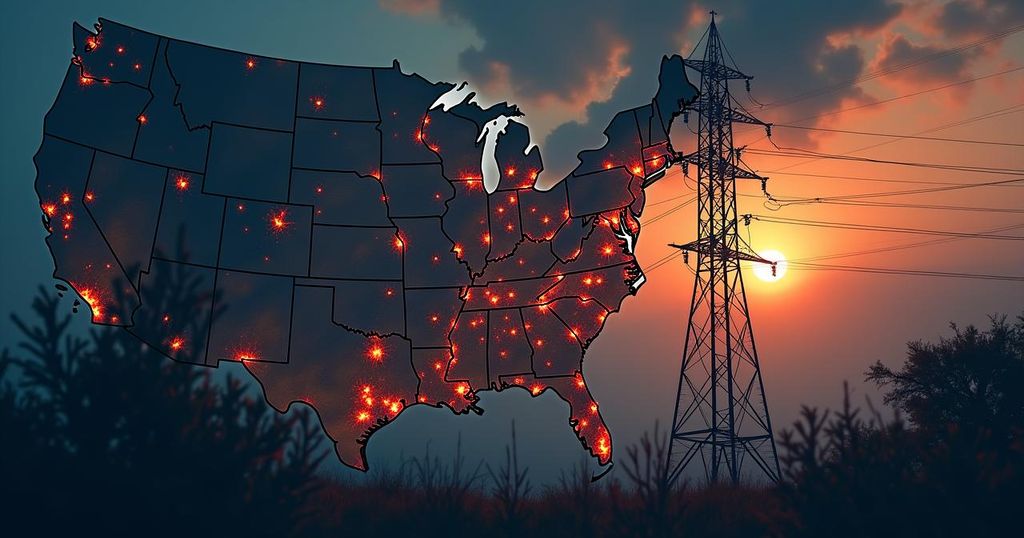Hurricane Helene: A Devastating Storm Leaves the Southeast U.S. Struggling for Recovery
Hurricane Helene has devastated the southeastern United States, resulting in at least 63 fatalities and leaving over 2.6 million residents without power in ten states. The storm made landfall in Florida as a Category 4 hurricane and has caused extensive damage and evacuations across the affected areas. Emergency responses are underway, with FEMA and local teams conducting rescues as the region begins the clean-up process.
Hurricane Helene has wrought unprecedented destruction across the southeastern United States, claiming the lives of at least 63 individuals and leaving over 2.6 million people without power across ten states. The devastation is felt acutely in areas such as Florida, Georgia, South Carolina, and North Carolina, where many individuals remain stranded, without shelter, and awaiting rescue following the hurricane’s catastrophic impact. As of early Sunday morning, extensive power outages persisted, with poweroutage.us reporting millions of customers without electricity, as many communities face the grim aftermath of uprooted trees, downed power lines, and damaged homes caused by mudslides. The National Weather Service has stated that while conditions are expected to improve, the potential for a prolonged period of power outages remains a concern. Hurricane Helene made landfall as a Category 4 storm on Thursday, and though it had weakened to a post-tropical cyclone by the time of report, its remnants continued to threaten heavy rain and flooding in the Ohio Valley and Central Appalachians. In response to the unfolding crisis, the Federal Emergency Management Administration (FEMA) has declared emergency statuses in six states, facilitating immediate relief and rescue efforts. Notably, over 3,200 FEMA team members have been deployed, and rescue teams have undertaken more than 600 rescues to date. The human cost is significant, with South Carolina reporting 24 fatalities, Georgia 17, Florida 11, North Carolina 10, and one in Virginia. Communities across the affected regions are in a state of disarray, with residents such as Steven Mauro from Valdosta, Georgia, voicing concerns over limited resources available for families in need. President Joe Biden remarked on Saturday that the devastation wrought by Helene was “overwhelming,” as officials continue to assess the loss and coordinate recovery efforts. Areas like Asheville in North Carolina reported severe flooding, leading local officials to caution about potential dam breaches, although some dams have since been stabilized, allowing residents downstream to return home. Cedar Key, known for its pastel wooden homes, has suffered extensive damage, further highlighting the broader impact on small towns and communities throughout the region. As rescue operations continue, there are reports of isolated towns in the Carolina mountains cut off from communication and access due to washed-out roads or mudslides.
The article discusses the aftermath of Hurricane Helene, which struck the southeastern United States with devastating force, leading to significant loss of life and widespread power outages. Understanding the severity of this storm and its impact on various states illustrates the ongoing challenges faced by communities in hurricane-prone areas. The response from officials, including emergency declarations and rescue operations, reflects the urgent need for relief efforts in the aftermath of such natural disasters.
In conclusion, Hurricane Helene has been a catastrophic event for the southeastern United States, with substantial loss of life and millions affected by power outages. The severe conditions necessitated prompt action from federal and state officials, as well as community volunteers, as they navigate the complexities of recovery and humanitarian aid in the wake of destruction.
Original Source: www.aljazeera.com




Post Comment